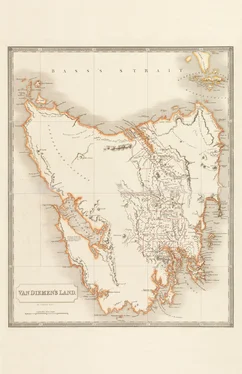“Theft?”
She sighed and chose the least incriminating charge. “I was accused—wrongly accused—of stealing a ring.”
“Ah. Let me guess.” Lacing her fingers together, Olive cracked her knuckles. “Some cad gave it to ye in exchange for favors. Then denied it.”
“No! It wasn’t in exchange for . . .” Was it? “He’s . . . away. I was accused in his absence.”
“Uh huh. He knows you’re up the pole?”
Evangeline had never heard the expression, but its meaning was obvious. She shook her head.
Olive thumbed her chin, then looked Evangeline up and down. “Ye were the governess.”
Was her tale of woe so utterly predictable? “How do you know that?”
Lifting her hand to her mouth, Olive made a starburst with her fingers. “The way ye talk. Book smart. But ye don’t have the airs of a lady. Pity you’re not so smart in the ways of the world, Evange-a- leen .” She shook her head and turned away.
As Evangeline well knew from her father’s sermons, a woman’s greatest possession was her chastity. While men were more advanced in nearly all ways—more intelligent and reasonable, stronger, more resourceful—they were also inclined to recklessness and impulsivity. It was the duty of women to slow them down, he always said, to bring forth their better natures.
She thought she’d absorbed this lesson, but in the small village where she was raised, forty miles and a world away from London, it had never been put to the test. Most people in Tunbridge Wells stayed close to their parents and married their neighbors, sustaining and fortifying a web of relationships that became more tightly woven as each generation succeeded the last. But Evangeline had not been part of such a web. Her mother died in childbirth, and her widowed father lived a life of the mind, with little interest in quotidian earthly details. He’d preferred that Evangeline keep him company in the library, reading side by side, rather than performing the usual female duties—and anyway, the vicarage came with a housekeeper.
Detecting a sharp curiosity in his only child, he hired a tutor to teach her Greek and Latin, Shakespeare and philosophy. These hours in the library of the vicarage shaped her destiny in a number of ways. She emerged far better educated than the average villager, but because she’d been raised without peers, she was woefully guileless. She had no confidantes with whom to gossip, and thus to learn. Her father wanted to insulate her, to shelter her from harm, and in doing so he denied her the inoculation required to survive. She could name the seven continents and identify the constellations, but she knew little, in a practical sense, about the world beyond her door.
When Evangeline was twenty, her father died after a short illness. Two days after the funeral an emissary of the bishop appeared at the door, politely inquiring as to her plans. A young curate with a wife and small children had been appointed to take over the vicarage. How soon could she vacate the premises?
With dismay, Evangeline realized that her father had given little—that is, no—thought to a future without him. And neither had she. Both of them had blithely assumed they’d go on reading together in the library, drinking tea in front of the fire. With only a small inheritance, no living relatives, and negligible practical skills, she had few options. She could marry, but whom? Despite her beauty, the eligible men in her village weren’t exactly clamoring for her hand. She was, by temperament, much like her father: diffident, with a shyness often mistaken for aloofness, a bookishness perceived as snobbery.
Evangeline was in a quandary, the bishop’s emissary acknowledged—educated quite beyond her station but without the means or social status to attract a gentleman of superior rank. Which left her, he counseled, with one viable option: she must become a governess, teaching young children and living with a family. Prompting her to enumerate her skills, he listened carefully, scratching notes on parchment with his quill pen: English literature, grammar, arithmetic, religion, Greek and Latin and French, some drawing. A little piano. Then he submitted an advertisement to newspapers and circulars in and around London:
GOVERNESS.—A clergyman is desirous of RECOMMENDING A YOUNG LADY, the orphan of a vicar, to the situation of GOVERNESS in a family where she will have charge of their young children. She has been expressly educated for the purpose. Apply by letter, postpaid, to the Rev. P.R. at 14 Dorchester Street, Tunbridge Wells.
Envelopes began appearing in the vicarage post box. One letter in particular stood out. A Mary Whitstone, writing from a quiet street in northwest London, described a comfortable life with her barrister husband and two well-behaved children, Beatrice and Ned. The children had been brought up by a nanny, but it was time for them to begin a proper education. The new governess would have her own accommodations. She’d be with the children six hours a day, six days a week, and might be expected to accompany them on holiday. Other than that, her time would be her own. A well-rounded education, Mrs. Whitstone wrote, should, in her view, include occasional excursions to museums and musical concerts and even perhaps the theater. Evangeline, who’d never done any of these things, was intrigued. She answered Mrs. Whitstone’s many questions dutifully and at length, sent off her letter, and waited for the reply.
Despite her provincial ingenuousness, or perhaps because of it, she impressed the lady of the house sufficiently to receive an offer of employment: twenty pounds a year, plus lodging and meals. It seemed to Evangeline an extravagant sum. To the bishop, and the young curate poised to begin his new life in the vicarage, it was a godsend.
Over the next few days at Newgate, Evangeline thought desperately about reaching out to someone, anyone, who might come to her aid, but could think of no one who might testify with great conviction to her good name. Though as the vicar’s daughter she’d been accorded a modicum of deference, her father’s decision to keep her close to home meant she’d made no real friends in the village. She wondered about contacting the housekeeper at the vicarage, or maybe the butcher or the baker or one of the shop clerks she’d been friendly with, but she suspected the word of an ordinary villager wouldn’t carry much weight. She didn’t know anyone in London other than the Whitstones.
She hadn’t heard from Cecil.
By now he would have returned from Venice. By now he should’ve gotten the news. A small part of her clung to the hope that he’d act honorably and step forward. Perhaps he’d send a letter: You were wronged. I’ve told them everything . Maybe he’d even come and find her.
She needed to look presentable if he arrived. When the guards brought a clean bucket of water, she scrubbed her face and neck and swiped under her arms with a rag. She blotted her bodice and parted her hair with her fingernail and smoothed it down, tying it back with a strip of rag.
“Who’re ye cleaning up for?” Olive wanted to know.
“No one.”
“Ye think he’ll come for ye.”
“No.”
“You’re hoping.”
“He’s a good man, deep down.”
Olive laughed. “He isn’t.”
“You don’t know him.”
“Oh, poor girl,” she said. “Poor Leenie. I probably do.”
He was a good man, though. Wasn’t he? After all, he’d rescued her from loneliness in that house on Blenheim Road. She hadn’t known, when she accepted the position, how isolated she would feel. Evangeline was usually with the children until close to their suppertime; by the time she was free, the servants had finished their own meal and were busy serving the family dinner. Mrs. Grimsby, the cook, saved a plate for her, which she ate by herself. By seven o’clock she was holed up in her small bedroom for the night.
Читать дальше












